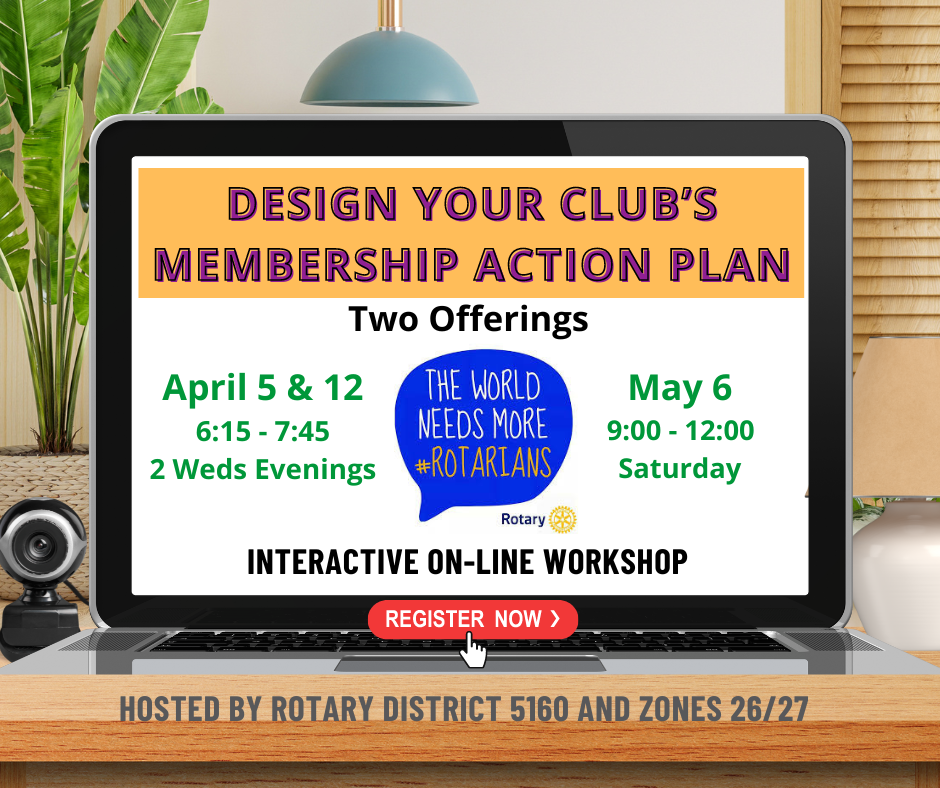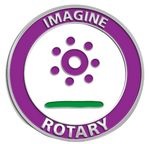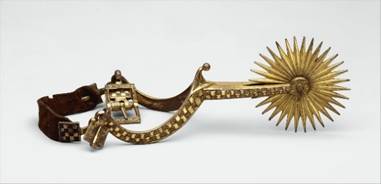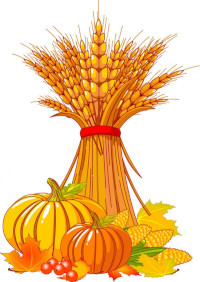|
Rotary International Theme 2022-2023
|
THE
ROWEL
Rotary Club of
Durham |
Rotary International President:
Jennifer E. Jones Rotary District
5160 Governor:
Suzanne BragdonDurham Rotary President: Eric Hoiland
_____________ Editor: Phil Price Publisher: Jen Liu |
|
|
|
April 4, 2023
|
will be held on September 17,
2023 |
|
| 2023 Calendar for Durham Rotary | |||||||
|
A p r i l |
1 | ||||||
| 2 | 3 |
4 Meeting Community Vocational Project by Paradise Rotary Club (Jen Liu) |
5 | 6 | 7 | 8 | |
| 9 | 10 |
11 No Meeting |
12 | 13 | 14 | 15 | |
| 16 | 17 |
18 |
19 | 20 | 21 | 22 | |
| 23 | 24 |
25 No Meeting |
26 | 27 | 28 |
29 Rotary Visibility Day |
|
| 30 | |||||||
|
M a y |
1 |
2 Meeting Garbage Talk by Butte County Solid Waste Dept. (Mike Crump) |
3 | 4 | 5 | 6 | |
| 7 | 8 |
9 No Meeting |
10 | 11 | 12 | 13 | |
| 14 | 15 |
16 Meeting Meet the Students BBQ at Durham Park (Eric Hoiland) |
17 | 18 | 19 | 20 | |
| 21 | 22 |
23 |
24 | 25 | 26 | 27 | |
| 28 | 29 |
30 No Meeting |
31 | ||||
|
|
The
Meeting Opening
The meeting was called to
order by Eric Hoiland at the Butte Creek Country
Club. He asked Mike Crump, to lead the
pledge, which he did. He then asked Jim Patterson to
present the invocation, which he did, mentioning Sue Jessen and Robert Olea.. He asked Larry Bradley to lead
us in a song. He led us in singing “Take
Me Out To The Ball Game” |
|
FUTURE
MEETINGS: Meetings will
be at the location noted, at 6:00 pm. |
|
April 18th. Steve Plume will
present Heather Lowe, Durham HS alumni teaching in Chico at the BCCC. April 29th: Rotary Visibility Day May 2nd: Mike Crump will present a program about
garbage, at the BCCC. May 16th: This will be the Scholarship Awards and
Teacher of the Year, at the Durham Community Park. June 6th: President Eric will present a program. Location undetermined. Board Meeting at 5:00 pm |
Announcements
Board Meeting
President Eric
reported that Glenn Pulliam will be president for 2023-2024 and Peggi Witman
will be president for 2024-2025.
He also reported
on future meeting programs. See
sidebar. Note that the meeting of May 16th
will be at the Durham Community Park.
Lastly,
he noted that the Board discussed our participation in Rotary Visibility Day on
April 29th. This is a program to market Rotary. Each club in the District
is to do something to make them visible to the community. Our Rise
Against Hunger program would have been ideal, but unfortunately it has been
cancelled. One suggestion was
participation in the Wildflower Century rest stop in Durham. Members are
requested to make suggestions.
Durham Parade
The annual Durham
Parade will be held in May 13th.
They need 7 volunteers for traffic control. If you can help contact president Eric. They are also adding something this year. Fireworks in the evening and they are seeking
funds to help with that.
Introduction
of Visitors.
We had a lot of visitors.
Eight members of Paradise Rotary visited. Ravi Saip
introduced Brian Gray, Travis Barker, Jim Elloway and
Chewne Luna.
Steve Plume introduced Pam Gray (Past District Governor). Ravi Saip
introduced Sonny Vertimiglios, Kelli Gorden and Melissa Crick, who were also our program for the
evening.
Recognitions
 Mike Wacker was recognized for his birthday on April 7th. He requested and received a song. He contributed $50.
Mike Wacker was recognized for his birthday on April 7th. He requested and received a song. He contributed $50.
Next Meeting
The next meeting will be on April 18th at the Butte Creek Country Club. Steve Plume will present Heather Lowe, Durham HS alumni currently teaching in Chico. She will talk about her receipt of a scholarship at Durham High
Membership
Bring guests who you think you can
interest in becoming a member. Think of
business owners or managers to bring. Your
dinner and your guest’s dinner will be paid for by the Club. Also, bring a guest to one of our occasional
social gatherings in the Durham Park or a Pizza place (Monday Night Football).
Go to the following Rotary International web site
for information on membership development:
https://my.rotary.org/en/learning-reference/learn-topic/membership
. From this website
there is access to membership development and other related information
Tonight’s Meeting Program

Sonny
Vertimiglios, Kelli Gorden
and Melissa Crick, of the Paradise Club, talked about Paradise Vocations, a
program for creating bridges between students, educators, and businesses working
to inspire the community to see the career potential in the local area (from
their web page).
This program is about the need
for workforce education and developing workforce skills. They noted that out of 10 jobs only one
requires an advanced degree (doctor, lawyer, etc.), only 2 require even a
Bachelor’s degree and 7 require trade school education. There are plenty of jobs in the Paradise
area, with the right education.
They were also promoting their
upcoming job fair. Employers as well as
student are excited about this job fair.

The
Rotary Foundation Donations
You
can make a difference in this world by helping people in need. Your gift can do
some great things, from supplying filters that clean people’s drinking water to
empowering local entrepreneurs to grow through business development training.
The
Rotary Foundation will use your gift to fund the life-changing work of Rotary
members who provide sustainable solutions to their communities’ most pressing
needs. But we need help from people like you who will take action and give the
gift of Rotary to make these projects possible.
When
every Rotarian gives every year, no challenge is too great for us to make a
difference. The minimum gift to The Rotary Foundation is $25.00. An
annual $100.00 gift is a sustaining member. Once your donations
accumulate to $1,000 you become a Paul Harris Fellow.
It
is possible to learn more about The Rotary Foundation on the Rotary web
site.
Your
gift can be made online or by sending Jessica Thorpe a check made out to The
Rotary Foundation to Durham Rotary, P.O. Box 383, Durham,
California 95958.
______________________________________________________________________
From the District Governor

|
From Rotary International
A Peace Fellow and polio survivor focuses on
accessibility
Wen Huang
Ronald Kasule caught polio when he was 3 years old. The disease left him paralyzed. Seeing that the boy could neither walk nor feed himself, his father intended to end his son’s life before he became a burden to the family. “My parents had fierce arguments over me,” he recalls. “In the end, my mother prevailed. She made the tough decision of divorcing my father to save my life.”

The family lived in Kisubi, a village about 60 miles southwest of Uganda’s capital, Kampala. His mother sold practically everything the family owned to search for a cure. When treatment failed, she came up with many creative ways to train her son at home so he could live independently. But when Kasule reached school age, he had no means of attending the distant school. One day, he pleaded with his mother until she relented and allowed him to go.
“With a book in my hand, I went with my siblings,” Kasule says. “But they ran very fast, and I could only crawl slowly on a gravel road. Before long, a rain came down. I had to turn around and go home. The rain had damaged my book. From then on, I voluntarily gave up the idea of schooling.”
In 1986, when Kasule was 7, rebel groups waged a civil war against the new Ugandan government. His village was under frequent attacks by rebel soldiers. “One night, before soldiers raided our village, my mother had to escape with my siblings without me because I was a big boy, and she wouldn’t be able to carry me. So, I was left alone in the house, with the door wide open.” Fortunately, the soldiers never entered the house.
Ronald Kasule with his mother
Courtesy of Ronald Kasule
When soldiers terrorized the community during the day, his mother would carry him to the nearby woods and hide him behind a bush. “She would say, ‘Ronald, if I survive, I will come back to get you, but if I don’t, God will keep you,’” says Kasule. “I would lie quietly, in fear until my mother came at night.”
These traumatic experiences motivated him in later years to apply for a Rotary Peace Fellowship. “A person with a disability cannot survive without peace,” he says.

As the civil war continued, Kasule and his family deserted their home and slept in the woods. They later moved to another region and stayed with an uncle, a schoolteacher who lived on campus. The relocation enabled Kasule to fulfill his childhood dream of attending school.
Kasule studied hard and excelled in his class. The charity organization ActionAid gave him his first wheelchair and sent him to study at Kampala School for the Physically Handicapped.
For Kasule, the path to education after the war was paved with frustration. Even though he achieved the best scores in the district, he was denied access to his secondary school of choice after the school found out that he was disabled. “The school insisted that I could not manage without support, yet there was no support available for me,” he says.
Having dropped out of school, he tried to learn shoemaking. At Nkokonjeru Providence Cheshire Home, which provides
vocational training to people with disabilities, staff members learned about
his academic prowess and encouraged him to resume his studies, later sponsoring
his college education.
“I view peace in terms of development,” says Ronald Kasule, pictured here at the Rotary Peace Center in Kampala in 2021.
Image credit: Tobin Jones
“After college, I went back and tried to help people like me in my community to fight for equal access to education and jobs so we can fully participate in social, economic, and political life,” he explains.
Since people with disabilities in Uganda often lack access to reproductive health education, Kasule says that many of them are sterilized without their knowledge because some people believe that people with disabilities should not have children. So after graduation, Kasule co-founded Access for Action Uganda, an organization advocating for inclusive policies to aid people with disabilities and other marginalized groups. He later served as the honorary council representative in a district government to advocate for the rights of constituents with disabilities.
Making up for his lost educational opportunities, Kasule earned a master’s degree and completed several certificate programs, including one in sustainable development and global justice from the University of Antwerp in Belgium and another in social protection and inclusion of people with disabilities from Bonn-Rhein-Sieg University of Applied Sciences in Germany.
In 2018, Kasule was selected for a U.S. State Department-sponsored fellowship in inclusive disability employment. He traveled to Washington, D.C., to visit private and public initiatives that promote employment for people with disabilities.
“When I came back, I was supposed to implement what I had learned,” he says. “I had many ideas but did not know how to start.” While figuring out solutions, he came across news about the new Rotary Peace Center in Kampala.
In February 2021, Kasule joined the inaugural class of 15 peace fellows from 11 countries at the Rotary Peace Center at Makerere University to study peacebuilding and conflict resolution. The program strengthened his peacemaking skills, allowing him to traverse Uganda, where he met with social service providers and other peacemakers.
Ronald Kasule
- Diploma in community-based rehabilitation, Kyambogo University, Kampala, 2003
- Bachelor’s in adult and community education, Makerere University, Kampala, 2008
- Master’s in educational planning, economics, and international development, Institute of Education, University of London, 2013
- Rotary Peace Fellowship, Makerere University, Kampala, 2021-22
“During my research, I noticed that more people are now attending universities to gain various skills for supporting persons with disabilities, but after graduation there is no work for them,” he says. “Meanwhile, I have talked to many local companies, but most of them told me that they are not against employing people with disabilities. The challenge is that they do not have the resources.”
In the summer of 2021, Kasule launched an online platform, Diversity Ability Support Network System, that provides information about disability resources, connecting Ugandans with disabilities with social agencies and service providers, such as home care workers, personal aides, and sign language interpreters. At present, he and his colleagues are redesigning the Dasuns platform, incorporating additional web and mobile-based applications and features to make it accessible to more users. Kasule’s goal is to scale Dasuns across Africa.
“We often talk about peace in terms of conflicts,” he says. “But for me, I view peace in terms of development — you cannot be at peace with yourself if you are hungry, you cannot be peaceful when you have no access to the support and resources available within your community. You’ll feel sidelined.”
This story originally appeared in the April 2023 issue of Rotary magazine.
|
The Rotary
International web site is:
www.rotary.org
District 5160 is:
www.rotary5160.org The Durham Rotary
Club site is:
www.durhamrotary.org The Rowel Editor may be contacted at:
pbprice1784@gmail.com The deadline for the Rowel 6:30
am on Wednesdays. The Editor’s photographs published in the Rowel are
available, upon request, in their original file size. Those published were substantially
reduced in file size. |




